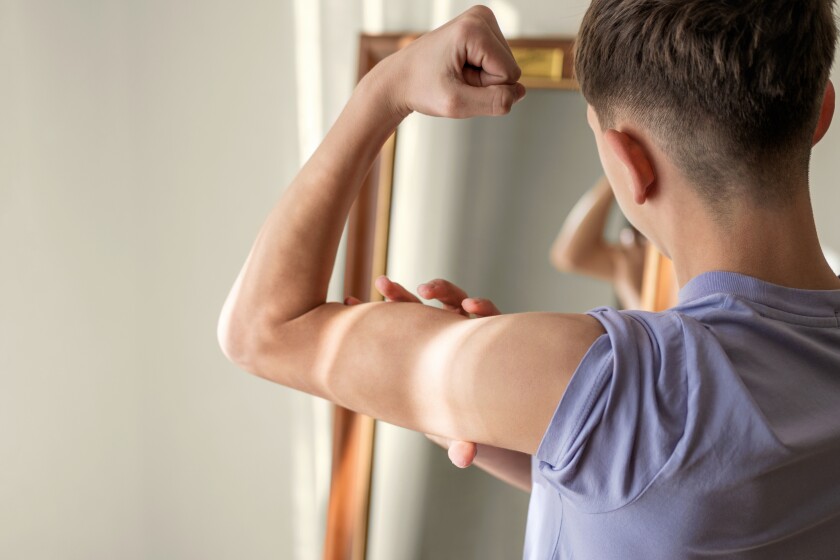
URGENT UPDATE: A rising trend in male body dysmorphic disorder (BDD) is demanding immediate attention as new reports reveal alarming statistics about mental health among young men. Experts warn that social media is exacerbating this crisis, with toxic fitness influencers promoting unrealistic body standards.
Recent findings from Harvard Medical School indicate that the pressure on men to conform to idealized body images can lead to dangerous behaviors, including the use of contaminated supplements and extreme dieting practices. The report highlights a troubling correlation between BDD and mental health issues such as depression and suicidal tendencies.
Many young men are now grappling with destructive thoughts, often driven by messages from social media figures like Andrew Tate, who perpetuate harmful stereotypes about masculinity and fitness. These influencers frequently belittle their audiences, contributing to a cycle of negativity that affects mental well-being.
As the conversation around male body image grows, it is crucial to foster open dialogue. Experts advocate for more men to share their experiences, breaking the stigma that links these discussions to weakness. “Striving to be healthy is not bad, but obsessing about your body to these extremes is,” warns mental health advocates.
In stark contrast to harmful figures, positive influencers like Noel Deyzel are emerging. Deyzel promotes self-acceptance and confidence, encouraging followers to embrace their bodies at any fitness level. His approach highlights the importance of mental health over physical appearance, a message that resonates deeply in today’s society.
This urgent issue highlights a broader cultural crisis. The male body image epidemic is not just an individual problem but a societal one that needs comprehensive action. Experts are calling for increased awareness and support systems for men struggling with these issues.
Next steps include promoting positive role models and encouraging discussions around mental health. By amplifying voices that advocate for a healthy body image, society can make strides towards reducing the stigma surrounding men’s mental health.
As these conversations gain momentum, it is imperative that we challenge the norms and redefine what it means to be “healthy.” The time for change is now—let’s ensure that male body image and mental health receive the attention they deserve. Share this message widely to help spread awareness and foster understanding.





